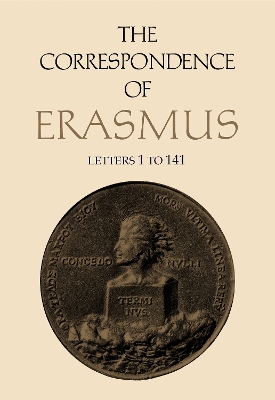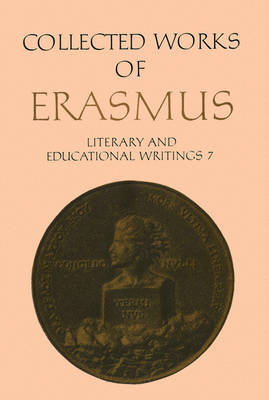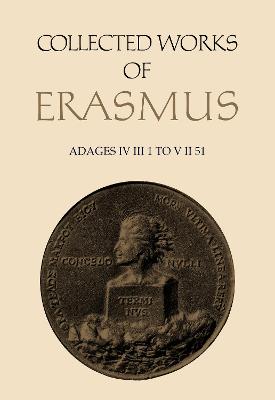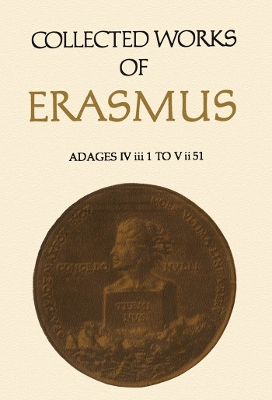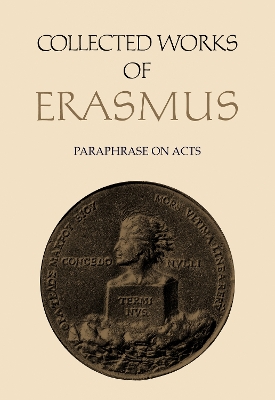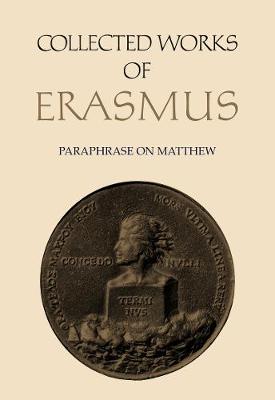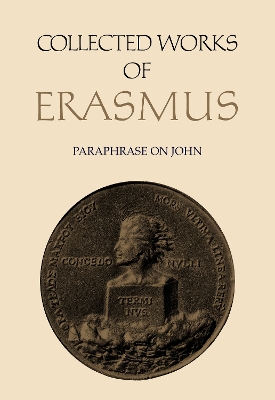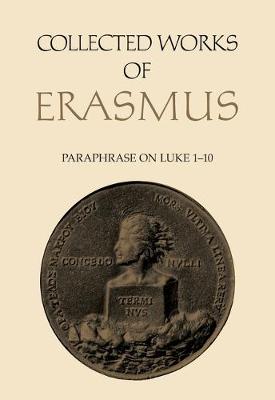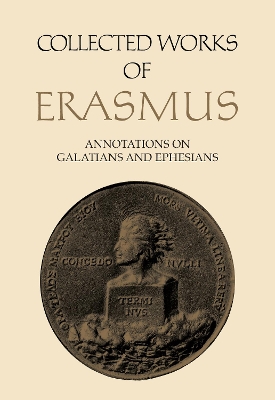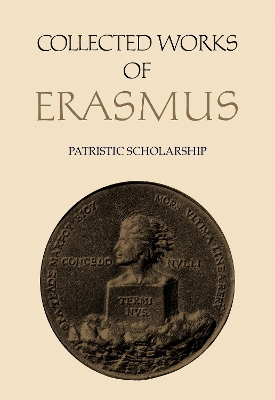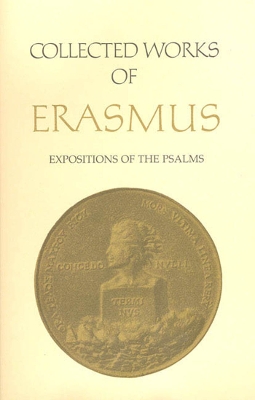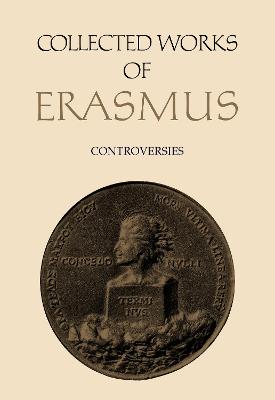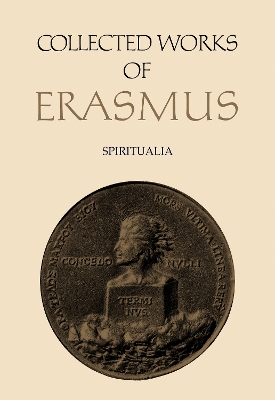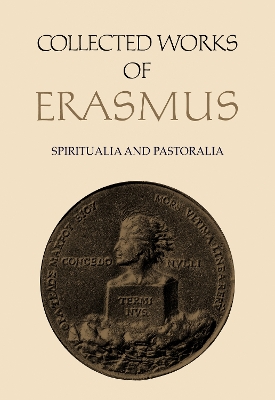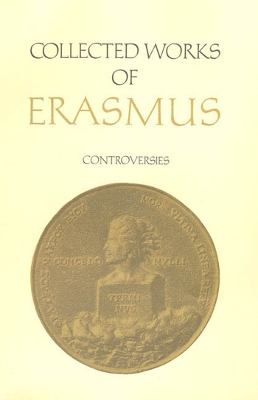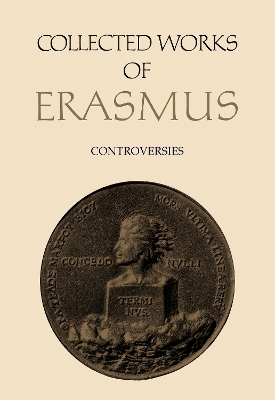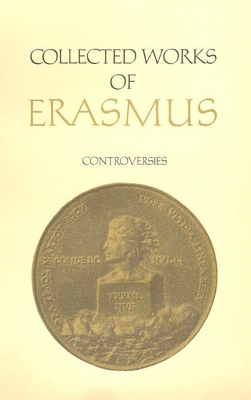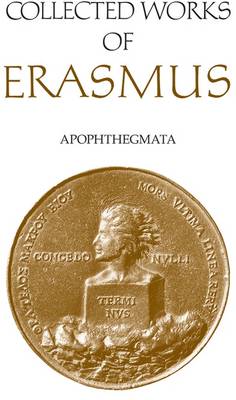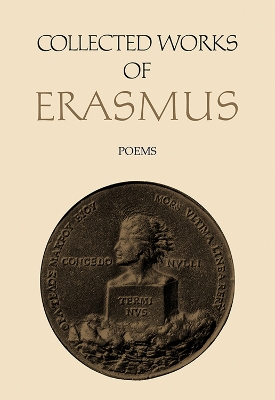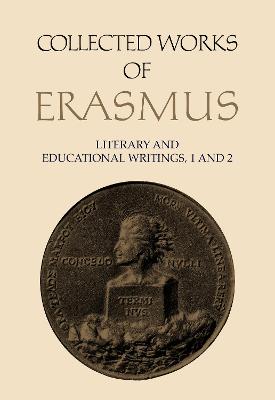Collected Works of Erasmus
17 primary works • 23 total works
Book 12
Not the Folly nor the Colloquies but the Letters, are his best piece of literature. What he did in scholarship, whether biblical, patristic, or classical has been superseded - though not the fine temper of it. That fine free temper shines also in the Letters, being indeed one of the elements of literature...In the immortality of their readableness Erasmus lives securely, immune from the discredits of circumstances.' The volume of the correspondence is enormous, and its cumulative effect fully justifies the claims that have been made for its importance. Erasmus was from his youth on an indefatigable correspondent, although he was careless about preserving his own letters or those written to him until he became famous and found printers eager to publish them. As a consequence, 85 per cent of the surviving letters were written after he reached the age of forty-five. Even when he had no thought of publication, however, he strove ceaselessly to make his letters models of elegant classical latinity, while adjusting the style of each letter to fit its purpose, content, and recipient. Even the earliest letters of volume 1 bear evidence of this concern.
This volume includes a number of youthful rhetorical attempts, letters describing his early vicissitudes as he struggled to maintain himself as a scholar, letters to friends and letters about enemies, letters to patrons and prospective patrons, and the beginnings of the more serious intellectual correspondence of his later years in an exchange of letters with John Colet on the subject of Christ's agony. Volume 1 of the Collected Works of Erasmus series.
Book 29
Book 31
The work was highly acclaimed and circulated widely in Erasmus' time, serving as a conduit for transmitting classical proverbs into the vernacular languages, in which many of the proverbs still survive to this day.
Book 36
This sixth of seven volumes devoted to the Adages in the Collected Works of Erasmus completes the translation and annotation of the more than 4000 proverbs gathered and commented on by Erasmus in his Adagiorum Chiliades (Thousands of Adages, usually known more simply as the Adagia). This volume's aim, like that of the others, is to provide a fully annotated, accurate, and readable English version of Erasmus' commentaries on these Greek and Latin proverbs, and to show how Erasmus continued to expand this work, originally published in 1508, until his death in 1536. An indication of Erasmus' unflagging interest in classical proverbs is that almost 500 of the 951 adages translated in this volume did not make their first appearance until the edition of 1533.
Following in the tradition of meticulous scholarship for which the Collected Works of Erasmus is widely known, the notes to this volume identify the classical sources and illustrate how the content of his commentaries on the adages often reflects Erasmus' scholarly and editing interests in the classical authors at a particular time. The work was highly acclaimed and circulated widely in Erasmus' time, serving as a conduit for transmitting classical proverbs into the vernacular languages, in which many of the proverbs still survive to this day.
Book 44
The Paraphrases sharpen the accent of the biblical message, speaking in an idiom appropriate to the sixteenth century but also surprisingly relevant to our own age: they condemn, for example, every form of tyrannizing in the home and self-aggrandisement in the church; perhaps above all, the Paraphrases expose the social injustice (inevitable, Erasmus would have us believe) of those who have acquired great personal wealth. Erasmus also reformulates, and sometimes develops, some of the great theological themes already defined in earlier volumes of this series. Is sin congenital, or do we sin simply in 'imitation' of Adam? How do the Hebrew Scriptures attest to the presence of divine grace in the world before the birth of Christ? What is faith if not a vision of eternal realities so sure that we can clearly recognize the things of this passing world as the shadows they are? These Paraphrases address the modern reader with the relevance of the moral issues they define and the perennial importance of the theological questions they raise. Erasmus clarified and interpreted biblical text with immense rhetorical skill. Volume 44 of the Collected Works of Erasmus series.
Book 45
As a Preface to the Paraphrase, Erasmus wrote a 'Letter to the Pious Reader,' which became one of his most provocative and important essays. Like the more published Paraclesis, this 'Letter' vigorously advocates the translation of scripture into the vernacular languages, and proposes a 'confirmation' ceremony to encourage young people to assume responsibility for the vows taken for them at baptism by their sponsors. This volume illuminates the early thinking of Erasmus and is a welcome addition to the Collected Works series. Volume 45 of the Collected Works of Erasmus series.
Book 46
Book 47
Book 58
Book 61
Book 64
Together, these three volumes open new sources for Erasmus scholars interested in humanist scriptural interpretation, the patristic heritage, and the religious and intellectual history of the Renaissance and Reformation. Volume 64 of the Collected Works of Erasmus series.
Book 65
Book 66
Book 70
Book 72
The volume is an entertaining and informative look into Erasmus as a scholar and as a man. Volume 72 of the Collected Works of Erasmus series.
Book 73
Book 84
37 & 38
No. 23-24
Antibarbari (1520), translated and annotated by Margaret Mann Phillips, is a defence of the humanities against ignorant and misguided critics who question both their supposed worth and the appropriateness of pagan writings for Christian pupils. The reply of Erasmus becomes a manifesto on behalf of reason, scholarship, and literature. As for paganism, he insists that if secular knowledge is used properly it cannot harm but must help Christians. 'None of the liberal disciplines is Christian' because they all antedated Christianity, yet they 'all concern Christ' because they can be put to Christian uses. Parabolae (1514), translated and annotated by R.A.B. Mynors, a work that 'contributes eminently to style,' is a collection of similitudes drawn from observations of men, customs, and nature. Many are culled from Plutarch and Seneca, but for those from Seneca, and from Aristotle, the moral applications are added by Erasmus. As an exercise in the rhetoric of moral philosophy - 'many jewels in one small box,' Erasmus terms it-this book quickly became popular and long remained so. De copia (1512), translated and annotated by Betty I.
Knott, is not a plan for the entire curriculum but a treatise on the 'abundant' or rich style in writing and speaking Latin, a guide to attaining fluency and variety in discourse. As a manual for students De copia broke new ground. It was a remarkably successful work, used in schools in many lands for generations. From 1312 to 1600, more than 130 printings are recorded. De ratione studii (1312), translated and annotated by Brian McGregor, furnishes a concise but clear exposition of the curriculum, text, and methods of Erasmus' programme for liberal studies in grammar schools. Here as in all of his writings on education, language is the heart of the matter. The main goals are accurate, effective expression and communication in Latin, though Erasmus expects much besides literature to be learned from the study of literature. He emphasizes the necessity for competent and sympathetic teachers. Each translation is introduced by the translator, and a general introduction by the editor discusses the significance of each of the works, its relation to the others, and its subsequent fortunes. Wallace K. Ferguson provides an introductory essay, 'The Works of Erasmus.'
